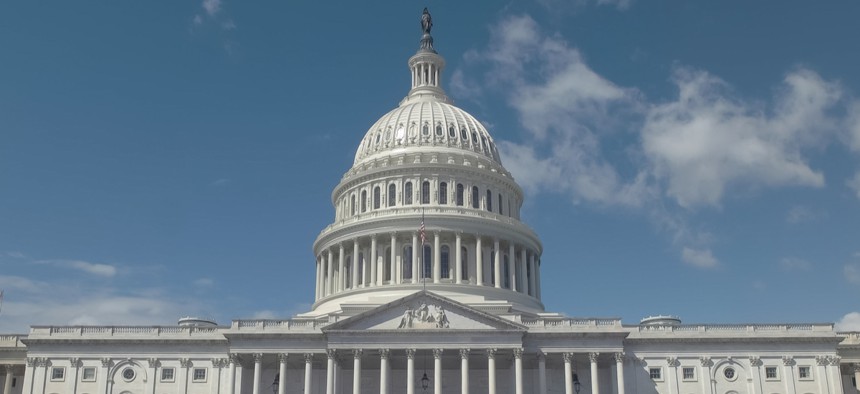Senate Sends 2-Year Budget Deal to Trump, Shifting Focus to Shutdown-Averting Spending Bills

crbellette/Shutterstock.com
Lawmakers now have through Sept. 30 to pass appropriations.
The Senate on Thursday approved 67-28 a two-year budget deal that was negotiated by the Trump administration and congressional Democrats, sending to the president's desk a bill that will avoid drastic governmentwide cuts and turn attention toward ensuring federal agencies remain funded past the end of the fiscal year on Sept. 30.
The vote followed months of negotiations spearheaded primarily by House Democrats and the Trump administration and avoids drastic, across-the-board funding cuts that were set to take effect in October. It would also suspend the debt ceiling for two years, staving off the threat of a default.
The measure—which will now go to President Trump, who has been a vocal proponent of the deal and helped round up Republican support for it—would boost funding across defense and non-defense agencies by $320 billion over the next two years compared to levels established under the 2011 Budget Control Act. Absent the budget deal, federal agencies would have seen a $125 billion cut in fiscal 2020 alone across both defense and non-defense spending.
Many conservative senators refused to support the bill, despite its endorsement by leadership and the White House, over concerns about the impact it will have on federal deficits. The Senate was originally set to move the measure Wednesday, but delayed the vote as Republicans sought to win over additional supporters. Several Democrats, most of whom are running for president, also voted against the bill.
Sen. Rand Paul, R-Ky., introduced an amendment to the budget deal that would have established a new set of caps on federal spending over the next decade. The Senate easily rejected the measure, allowing the bill to permanently to end the so-called “sequester caps” created in 2011.
“It's irresponsible to raise the debt ceiling without any reform of our profligate spending ways,” Paul said. “Shame. Shame on the politicians who campaign as conservatives but govern as big spenders.”
The president on Thursday reiterated his support for the bill, seeking to address conservative concerns by suggesting spending cuts could come in the future. The deal will set spending top-line spending levels through fiscal 2021.
Budget Deal is phenomenal for our Great Military, our Vets, and Jobs, Jobs, Jobs! Two year deal gets us past the Election. Go for it Republicans, there is always plenty of time to CUT!
— Donald J. Trump (@realDonaldTrump) August 1, 2019
Senate Majority Leader Mitch McConnell, R-Ky., also made his pitch to solicit members of his caucus prior to the vote, noting it would boost defense funding and “secure the full faith and credit of the United States.”
“This is the deal President Trump is waiting and eager to sign into law," McConnell said. "This is the deal that every member of this body should support when we vote later this morning.”
Congress will now move to setting line-by-line spending levels at agencies across government. The Senate will shortly join the House in entering recess, and will not return to Washington until early September. The upper chamber is expected to quickly work to pass appropriations bills upon returning, and will have to negotiate with Democrats to reconcile those measures with the legislation the House has already approved. Congressional leaders have said they will attempt to fund agencies in fiscal 2020 with separate spending bills, rather than by merging all 12 must-pass measures into one omnibus.
Current appropriations are set to expire Oct. 1.
Lawmakers are hopeful they can avoid a last-minute showdown and a subsequent government shutdown, as they have agreed not to attach “poison pill” policy riders to those spending bills, such as language to increase access to abortion and to prevent the administration from transferring funds to build barriers along the U.S.-Mexico border.






